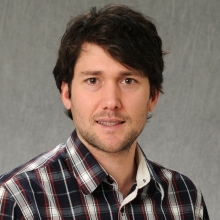HIV infection leads to the development of chronic inflammation that persists even in antiretroviral-treated individuals with undetectable viral loads. This inflammation is associated with non-HIV comorbidities, including cardiovascular disease, neurologic disorders, cancers, and an overall increased mortality. The importance of chronic immune activation is highlighted by the fact that immune activation is a better predictor of disease progression than either peripheral blood CD4 T-cell count or viral load. New approaches to manipulate the immune system of HIV-infected individuals to allow them to control HIV replication without antiretroviral-treatment (called functional cure) are now gaining interest.
Invariant natural killer T (iNKT) cells are innate-like T cells with a broad range of effector and immuneregulatory functions. Our preliminary results show that production of IL-4 and IL-10 by gut iNKT cells was associated with lower levels of immune activation. Therefore, iNKT could directly contribute reduce HIV associated pathology by limiting chronic inflammation. We also found that some Bacteriodes species, which are part of the normal gut microflora, are positively associated with gut iNKT cell frequency and production of IL-4. This proposed project aims at investigating the use of these Bacteriodes species to manipulate the frequency and function of iNKT cells to reduce chronic inflammation as part of a functional cure for HIV infection.


